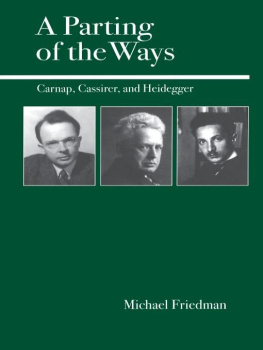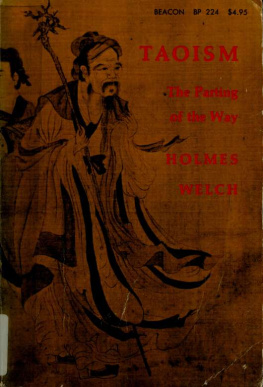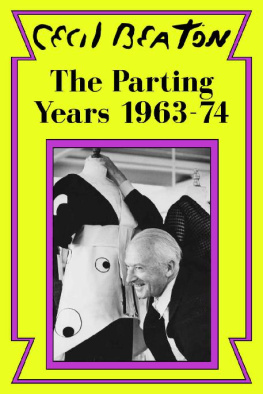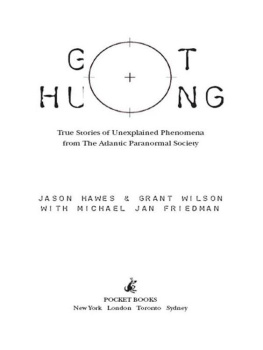Table of Contents
In memory of my friend David Burton (19451975)
Auch wir haben Bedrfnisse des Gemuts in der Philosophie; aber die gehen auf Klarheit der Begriffe, Sauberkeit der Methoden, Verantwortlichkeit der Thesen, Leistung durch Zusammenarbeit, in die das Invidividuum sich einordnet.
Rudolf Carnap
Der logische Aufbau der Welt
Die Logik erfllt die Welt; die Grenzen der Welt sind auch ihre Grenzen.
Die Logik ist keine Lehre, sondern ein Spiegelbild der Welt.
Die Logik ist transzendental.
Ludwig Wittgenstein
Tractatus Logico-Philosophicus
Preface
One of the central facts of twentieth-century intellectual life has been a fundamental divergence or split between the analytic philosophical tradition that has dominated the English-speaking world and the continental philosophical tradition that has dominated the European scene. The former tradition, in the eyes of many, appears to withdraw from the large spiritual problems that are the concern of every thinking personthe meaning of life, the nature of humanity, the character of a good societyin favor of an obsession with specific technical problems in the logical or linguistic analysis of language. Here philosophy has taken on the trappings of a scientific discipline, characterized by clarity of method and cooperative cumulative progress in the formulation and assimilation of results, but at the expense of all contact with the central philosophical problems that are of truly general concern beyond a small circle of narrow specialists. An engagement with the traditionally central problems of philosophy has thus been left to the continental thinkers, but the works of these thinkers, in the eyes of the more analytically inclined, appear to throw off all concern with clarity of method and cooperative cumulative progress in favor of a deliberate and almost willful obscurity more characteristic of a poetic use of language than of ostensibly logical argumentative discourse. The divergence between the analytic and continental traditions has therefore been an expression within the world of professional philosophy of the much more general split C.P. Snow famously identified between his opposing (and mutually uncomprehending) two culturesthat of the scientifically minded and that of the literary intellectuals.
In the early 1930s this fundamental intellectual divergence crystallized for a moment in a notorious polemical attack directed at metaphysical pseudo-sentences authored by Rudolf Carnap, a leader of the Vienna Circle of logical empiricists and one of the most militant advocates of a new scientific approach to philosophy explicitly intended as a quite radical break with the great metaphysical tradition. In his paper Overcoming Metaphysics through the Logical Analysis of Language [berwindung der Metaphysik durch logische Analyse der Sprache], Carnap specifically singles out Martin Heidegger as a representative of contemporary metaphysics, and then concentrates on Heideggers notorious proposition, Nothingness itself nothings [Das Nichts selbst nichtet], taken as paradigmatic of a metaphysical pseudo-sentence. For Carnap, this typically Heideggerian proposition is cognitively meaningless precisely because it violates the correctly understood logical structure of language. From Heideggers own point of view, by contrast, such a diagnosis, arising from the misplaced obsession with logic characteristic of what will later become known as the analytic tradition, of course misses precisely his point.
The collision between Carnap and Heidegger over Nothingness itself nothings may now strike us as more than slightly absurd: one party ponderously formulates deep sounding but barely intelligible pronouncements, the other pedantically subjects such pronouncements to what appears to be entirely inappropriate logical scrutiny. It is very hard to see, therefore, how anything of importance could possibly hang on it. When I began work on the present essay in the early 1990s, however, I was surprised and fascinated to learn that Carnaps polemical attack on Heidegger was intimately connected with a well-known defining episode in early twentieth-century philosophical thought, the famous Davos disputation between Heidegger and Ernst Cassirer in 1929. For, as it turns out, Carnap had attended the disputation between Heidegger and Cassirer, had met and talked with Heidegger at Davos, and had taken a very serious interest in Heideggers philosophy when he returned to Vienna. Carnap then wrote, and delivered, earlier drafts of Overcoming Metaphysics directly in the wake of this experience, as he himself struggled to find a professorship in Europe in the extraordinarily uneasy political climate of the early 1930s. It also turns out, perhaps not so surprisingly, that the issues at stake in Carnaps criticism (for both him and Heidegger) were charged with social and political significance, reflecting the deep and pervasive cultural struggles of the late Weimar period. Indeed, shortly after the Nazi seizure of power in 1933 (during which, as is well known, Heidegger assumed the rectorship at Freiburg while publicly embracing the new National Socialist regime) both Carnap and Cassirer emigrated to the English-speaking world, and Heidegger was the only active philosopher of the first rank to remain on the Continent.
What I hope to show in this essay, then, is that the Davos encounter between Carnap, Cassirer, and Heidegger has particular importance for our understanding of the ensuing split between what we now call the analytic and continental philosophical traditions. Before this encounter there was no such split, at least within the German-speaking intellectual world. Logical empiricism, Husserlian phenomenology, neo-Kantianism, and Heideggers new existential-hermeneutical variant of phenomenology were rather engaged in a fascinating series of philosophical exchanges and struggles, all addressed to the revolutionary changes that were then sweeping both the Naturwissenschaften and the Geisteswissenschaften. The differing philosophical movements of course disagreed with and opposed one another about the interpretation and significance of these revolutionary changes, but they still spoke the same philosophical language, and they actively engaged one another on a common set of philosophical problems. Moreover, since the Davos disputation itself concerned the fate of neo-Kantianism and the proper interpretation of the philosophy of Kant (with Heidegger taking as his main target the Marburg School of neo-Kantianism with which Cassirer was closely associated), I further hope to show that carefully attending to the very different ways in which the thought of all three philosophers evolved in sharply diverging directions from a common neo-Kantian heritage can greatly illuminate the nature and sources of the analytic/continental divide.
The present essay thus presents the pervasive twentieth-century split between analytic and continental philosophical traditions refracted through the lens of one particularly important defining episode. By looking at the Davos encounter from the varying perspectives of all three of our protagonists we can, I hope, obtain an especially enlightening perspective for ourselves. We shall see, in particular, how the relatively less familiar philosophical position gradually articulated by Cassirer during this period can be seen as an heroic attempt to bridge the ever widening gulf between the scientifically oriented approach to philosophy championed by Carnap and the decisive attempt to move philosophy in a quite contrary direction represented by Heidegger. Situating Cassirers attempt at integration against the much more radically polarized positions of Carnap and Heidegger can thus provide us with new possibilities and renewed motivation for making a similarly heroic effort for ourselves. Although, as I shall argue, we might not be able to rest content with the materials that Cassirer has left us, it is still hard to imagine making progress without increased appreciation for both the strengths and the weaknesses of his wideranging and deeply synthetic style of philosophical thought.








